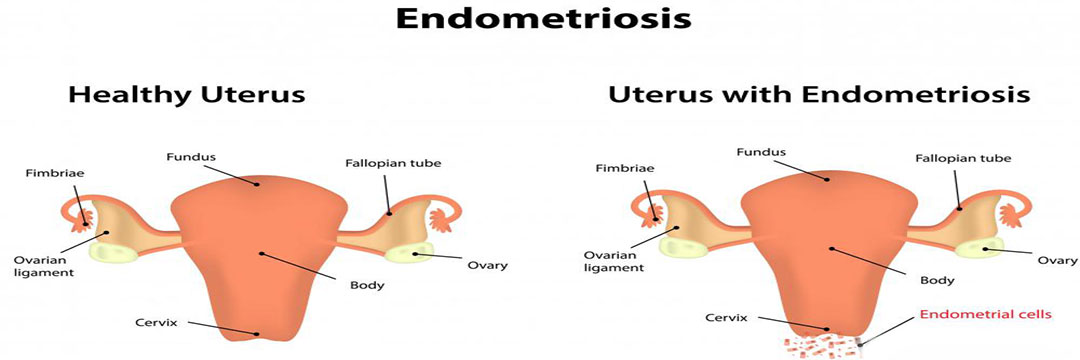Endometriosis: What You Need To Know

What is Endometriosis?
Endometriosis is a disease in which the type of tissue that forms the lining of the uterus (the endometrium) is found outside the uterus. This displaced endometrial tissue causes irritation in the pelvis that may lead to pain and infertility. Endometriosis occurs in about one in ten women of reproductive age. It is most often diagnosed in women in their 30s and 40s.
What are the symptoms of endometriosis?
Many women with endometriosis have no symptoms. Some women experience severe menstrual cramps, chronic pelvic pain, or painful intercourse. If endometriosis is present on the bowel, pain during bowel movements can occur.
Link between Infertility and endometriosis
Almost 40 percent of women with infertility have endometriosis. Even though endometriosis is associated strongly with infertility, not all women who have endometriosis are infertile. Infertility patients with untreated mild endometriosis conceive on their own at a rate of 2 to 4.5 percent per month, compared to a 15 to 20 percent monthly fertility rate in normal couples.
How is endometriosis diagnosed?
Often, endometriosis is diagnosed when a woman has pelvic surgery because of a persistent ovarian cyst or other reasons. Endometriosis is also often found in close family members like a mother or sister. Certain findings of a pelvic examination may lead your physician to suspect endometriosis. The extent of endometriosis is evaluated during laparoscopy. In special cases, your doctor may use special imaging techniques such as ultrasound, computerized tomography (CT ) scan, or magnetic resonance imaging (MRI) to gather more information about your pelvis.
How is endometriosis treated?
Treatment for endometriosis depends on the extent of the disease, the symptoms and the plans of your pregnancy. Endometriosis can be treated with medication, surgery or both. Birth control pills often reduce menstrual cramping and pelvic pain that may be associated with endometriosis. Surgery is usually chosen for severe symptoms, when hormones are not providing relief or if you are having fertility problems.
Treatment with ART Procedures
Couples diagnosed with endometriosis have success rates with assisted reproductive technology (ART) procedures such as in vitro fertilization and embryo transfer (IVF-ET) that are similar to those for couples with other causes of infertility. Success rates for ART procedures vary greatly depending on a woman’s age. IVF-ET is the most effective treatment for moderate or severe endometriosis, particularly if surgery fails to restore fertility.
Overall, a patient should choose a qualified specialist- one who is familiar with the latest developments in management of endometriosis -is your best strategy. The physician or a doctor you choose will recommend the most appropriate course of treatment based on your personal situation.
Get world class Infertility Treatment at the most affordable prices with high Success Rates. Consult Us now by submitting your queries in the section mentioned below or write us at [email protected]
